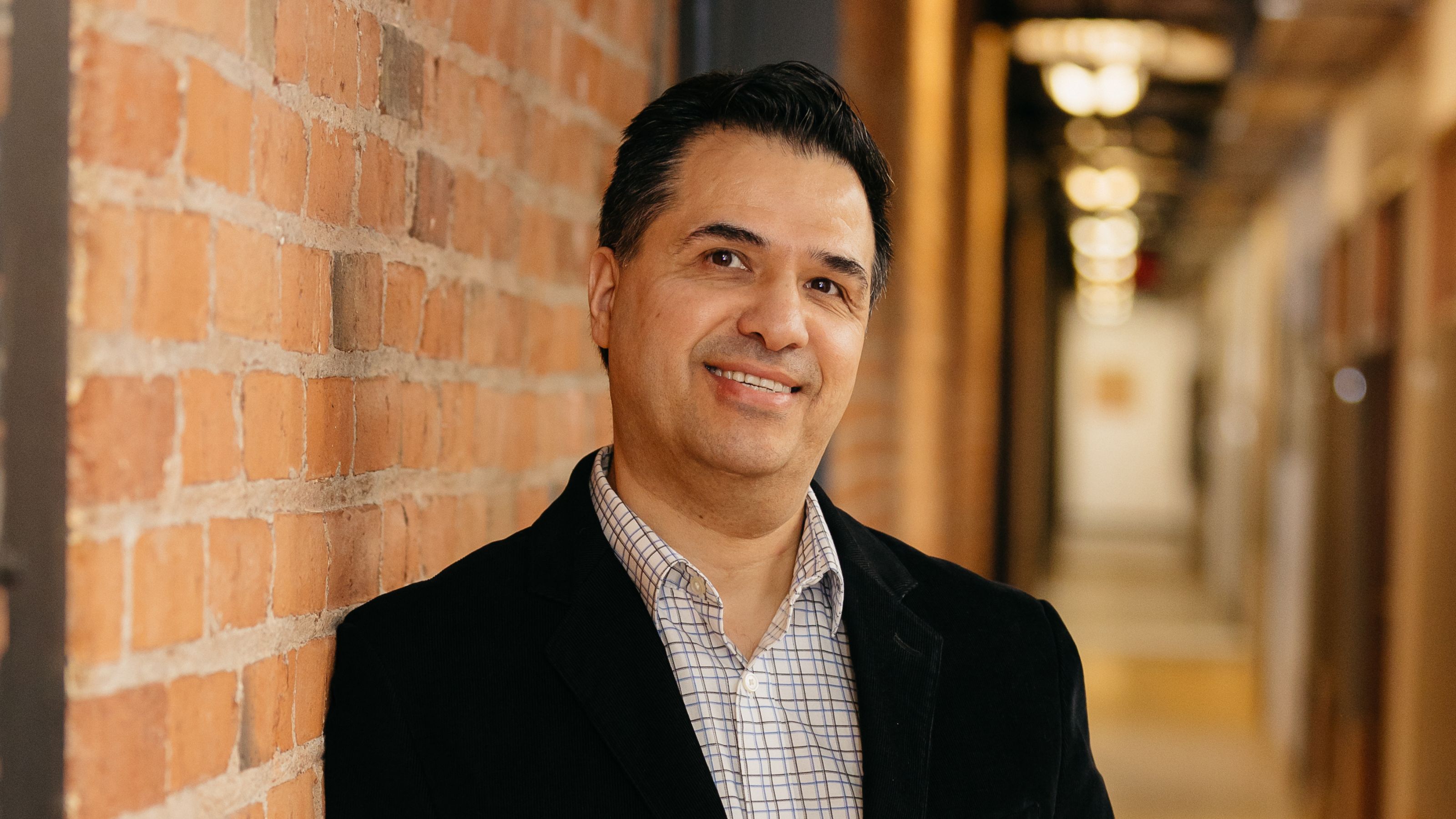Developed as an intelligent conversation agent by OpenAI, ChatGPT has been gaining rapid popularity since its public release on November 30, 2022, challenging educators to think about what academic integrity looks like in an AI world.
Questions and concerns about the use of generative AI at the University of Alberta are already on the minds of educators and scholars across the university. The Provost’s Taskforce on Artificial Intelligence and the Learning Environment is hard at work work developing recommendations for navigating the emergence of generative AI programs like ChatGPT and the 2023 Festival of Teaching and Learning, with the theme of re-imagining of traditions, will close on Thursday, May 4, 2023 with a keynote address on AI and education.
What is ChatGPT?
As a powerful natural language processing and question-answering system, ChatGPT provides an easy-to-use textual interface for people to create simple prompts, ask questions and request different types of text to be generated. The power of ChatGPT lies in its large, sophisticated natural language model and its massive underlying datasets that allow it to learn from and predict the next word in a sentence exceptionally well. ChatGPT’s underlying data draws upon a vast number of sources, including the Internet, Wikipedia, Google Books, coding tutorials and data from Common Crawl, a large-scale system that crawls the web and freely provides its archives and datasets to the public.
What can ChatGPT do?
One of the noteworthy and powerful features of ChatGPT is its ability to generate text that is difficult to distinguish from a human-generated text. This feature has the potential to provide numerous possibilities for generating automatic text, summaries, paragraphs, essays, articles, and other types of writing without human intervention. For example, ChatGPT can write essays based on a topic prompt with a set number of words, including citations, references and spelling style; it can write introductions, abstracts, stories and poems; it can create a detailed course description and outline.
ChatGPT: Key concerns
The introduction of ChatGPT has raised many academic integrity issues and concerns for educational and academic institutions. Many universities, educational institutions and researchers are in the process of rethinking and reimagining how assessments, exams and tests can be made plagiarism-proof as ChatGPT can easily be used to generate text for all kinds of assignments, essays and projects, resulting in potential academic dishonesty. Some of the key concerns are related to the ways in which ChapGPT can be used to potentially violate academic, research, and scholarship integrity, such as writing essays, term projects, and scholarly journal articles. Furthermore, a number of academics have expressed concerns about the possible negative impact of AI tools such as ChatGPT on students’ critical thinking, learning experiences, research training, and imagination. Another area of concern for higher education institutions is the ways in which AI tools such as ChatGPT may have an impact on and implications for student application and admission processes. More specifically, how do we ensure the academic integrity of the applicant’s documentation for admissions such as a statement of purpose and intent or essay requirements for undergraduate and graduate programs?
This question of whether or not ChatGPT should be allowed in schools and universities is also at the heart of many discussions in the media, K-12 and higher education institutions. There are competing perspectives as to whether or not we should consider using ChatGPT in our teaching and learning. Some institutions and educators argue that ChatGPT should be banned in schools and universities. For instance, the New York education department announced that they had forbidden ChatGPT on all of their networks and devices in public schools. The University of Sydney’s latest academic integrity policy specifically states that “generating content using artificial intelligence” as a form of cheating. In the UK, lecturers have been encouraged to review the ways in which they assess students in their courses, considering that some students are already using AI tools that are capable of creating hi In the UKgh-quality essays.
In contrast, some universities in Canada encourage educators and instructors to engage with students and have a transparent conversation about the tool and its limitations as well as how to avoid plagiarism and academic integrity violations when using AI-enabled tools. Academic integrity expert Sarah Elaine Eaton argues that rather than preventing AI-enabled tools such as ChatGPT, we need to critically evaluate how we conduct assessments. This approach would call for an open conversation with students about their learning and how these tools may help or hinder their learning opportunities and experiences. Methods such as take-home exams, out-of-class writing assignments, and online exams are being reevaluated and replaced by non-textual, skills-based, and, in some cases, multimodal tests, exams, and assignments. Examples of the ways in which assignments could be ChatGPT-proof include creating video presentations, podcasts, posters and in-class artifact and research creations.
Rethinking assessment strategies and approaches
While the question of whether or not ChatGPT should be used by students and researchers is an emerging and hot topic of discussion, there are currently efforts underway by academic and educational institutions to proactively develop recommended practices for alternative assessment approaches and strategies and academic integrity policies and regulations. These efforts aim to ensure academic integrity through the critical examination of the ways in which assessment should be conducted to prevent k-12, undergraduate and graduate students from heavy reliance on AI tools such as ChatGPT. A number of Australian universities are rethinking how they can create and run exams and other assessments, arguing for more pen-and-paper exams and tests (Cassidy, 2023). Similar approaches are taken by some universities in the UK. For example, a computer science department in the UK is removing the option of essay-based assignment and solely basing the assessment on skills-based assessment methods.
Are there applications to detect ChatGPT-generated texts?
There are a number of applications such as Grammarly, Turnitin, and Copyscape that can detect text similarities. However, these tools have limitations as they rely on their own underlying text databases, which are limited in coverage. This area of research and development is emerging and evolving. One of the latest developments related specifically to ChatGPT is an application called Chatzero (Humans Deserve The Truth) developed by Edward Tian, a Canadian Student in the Princeton Computer Science program that measures the perplexity of input text to detect whether or not a text has been generated by an AI agent or human and provides a plagiarism score. While this application is at its early stage of development and maturity, given my few initial tests on ChatGPT-generated texts, it already shows promise. There is no doubt that the debate over whether or not we should allow students to use AI-enabled tools such as ChatGPT in academia will continue for years. Information science educators and researchers have the knowledge and opportunity to make critical and proactive contributions to the ways in which digital and data literacy and information search and retrieval behaviour research can inform the development and responsible use of AI tools such as ChatGBT.
The full version of this article was originally published on Information Matters in February 2023.
Following the 2023 Festival of Teaching and Learning (FoTL) closing keynote speech by Aimée Morrison (University of Waterloo) on May 4, 2023 Ali Shiri will be speaking on a panel with AI and digital pedagogical scholars from across the University of Alberta to discuss AI and education.
This year's hybrid FoTL will take place May 2–4, 2023. View the schedule and register.
About Ali
Ali Shiri is a Professor in the School of Library and Information Studies at the University of Alberta, Edmonton, Alberta, Canada, and is currently serving as the Vice Dean of the Faculty of Graduate Studies and Research. He received his PhD in Information Science from the University of Strathclyde in Glasgow, Scotland in 2004 and joined the University of Alberta in the same year. He has been teaching, researching, and writing about digital libraries and digital information interaction and retrieval in the past two decades. In his current research, funded by the Social Sciences and Humanities Research Council of Canada (SSHRC), he is developing cultural heritage digital libraries and digital storytelling systems for the Inuvialuit communities in Canada’s Western Arctic. More recently, Ali has been researching and writing about AI and ethics.

